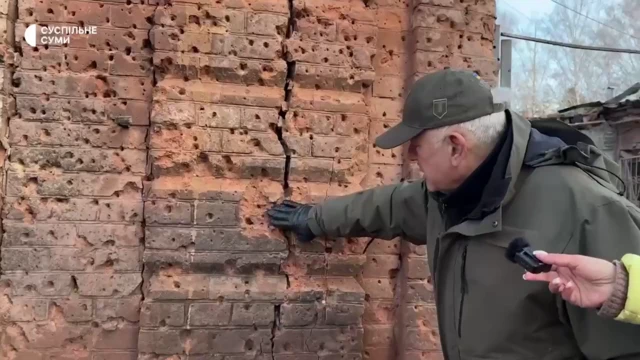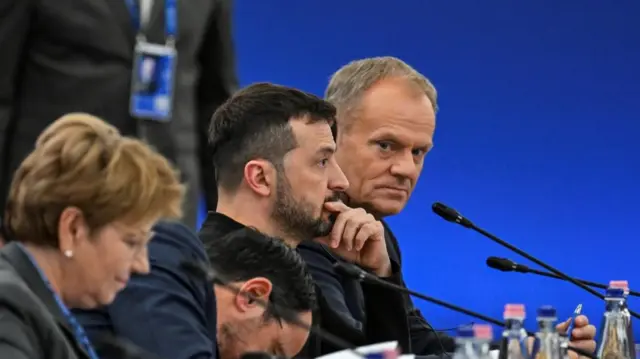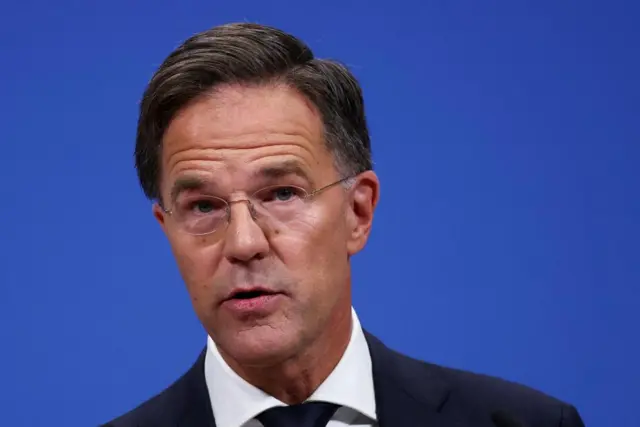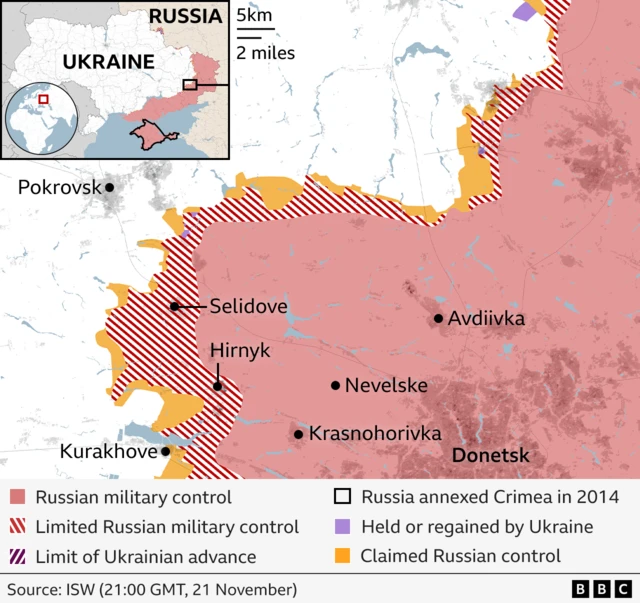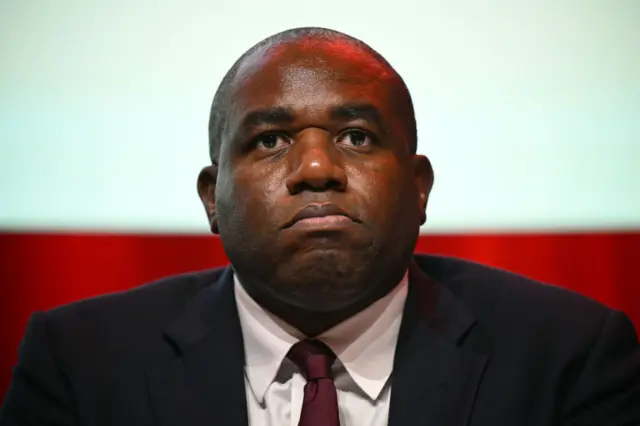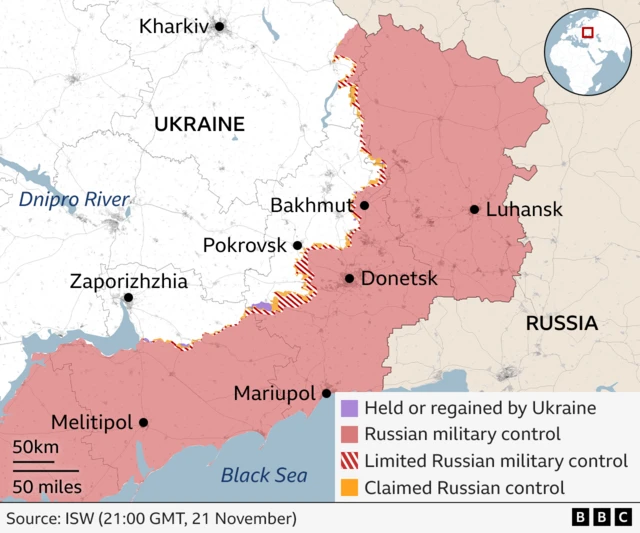Never before has threat of nuclear war been greater, North Korea sayspublished at 13:42 GMT 22 November 2024
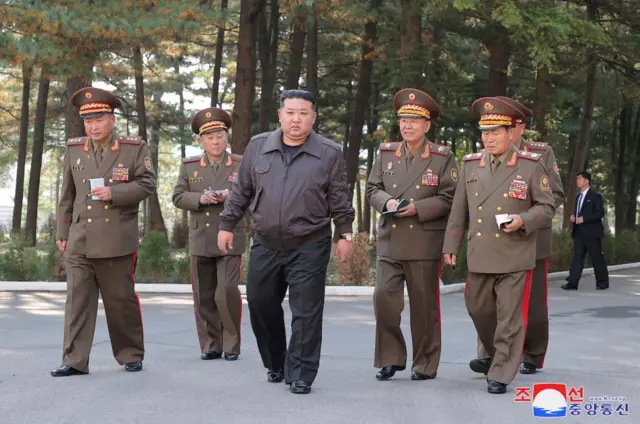 Image source, Korean Central News Agency
Image source, Korean Central News AgencyNorth Korean leader Kim Jong Un says "never before" has the threat of a nuclear war been greater, blaming the US for its "aggressive and hostile" policy towards Pyongyang.
"Never before have the warring parties on the Korean peninsula faced such a dangerous and acute confrontation that it could escalate into the most destructive thermonuclear war," he said at a military exhibition yesterday, according to state media KCNA.
He said North Korea has "already gone as far as we can" in its talks with the US, accusing it of having a "thorough stance of power and aggressive and hostile policy towards us that can never change".
Kim's comments come amid growing concern over deepening ties between Russia and North Korea, and as we reported earlier, Russia is estimated to have supplied North Korea with more than a million barrels of oil this year in exchange for weapons and troops Pyongyang has sent Moscow to fuel its war in Ukraine.

